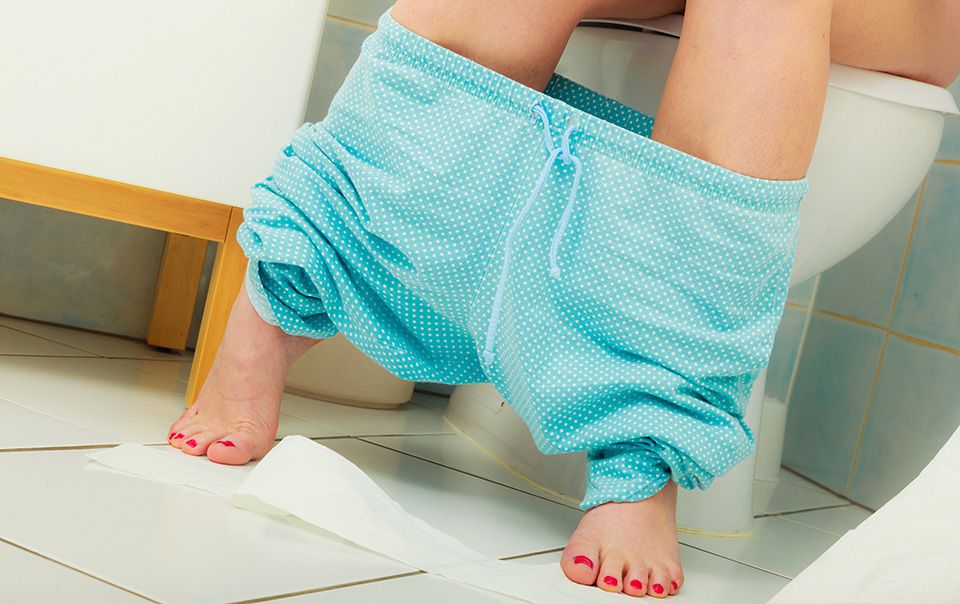
Obstructed Defecation Syndrome (ODS): the inability to defecate naturally
Obstructed Defecation Syndrome (ODS): many women (but also many men) suffer from constipation: in simple terms, they do not have normal defecation, both in relation to timing and frequency of evacuation
However, constipation does not always depend on diet or lifestyle: for many people (mostly women), the cause of the problem is ‘obstructed defecation syndrome’, i.e. the inability to defecate naturally.
Symptoms of obstructed defecation syndrome
Patients who are unable to pass bowel movements normally often experience the following symptoms
- they can only evacuate after taking laxatives or enemas;
- they have to help themselves using their fingers (typing) to go to the toilet;
- they have a feeling of incomplete evacuation;
- they evacuate several times during the day (fragmented defecation);
- they have to push a lot to go to the toilet (excessive and prolonged petting);
- have to stand on the toilet for a long time (more than 15 minutes);
- they experience rectal and perineal pain;
- they sometimes involuntarily leak stools.
Causes of obstructed defecation syndrome
The discomfort is caused, many times, by a problem inherent in the final part of the digestive system, the rectum, and not by incorrect lifestyle habits.
In particular, obstruction of the outflow of faeces (mechanical obstruction) due to problems of the rectum can be linked to the occurrence, even simultaneously, of the following phenomena
- external mucous prolapse: sometimes the mucous membrane of the rectum prolapses, creating an obstacle to the passage of stool (reason for efforts to evacuate);
- rectocele: at other times the muscles of the rectum become strained, creating a pouch which, in women, protrudes towards the vagina;
- invagination: the rectum collapses in on itself.
Faecal residues may remain in small mucous pockets, leaving one with the sensation of having to defecate again, or of feeling the need to go to the toilet several times.
Obstruction of defecation may also be related to stable prolapses of the uterus or intestine.
These two organs, by prolapsing, compress the rectum causing a reduction of the rectal lumen, thus making defecation difficult.
Read Also:
Emergency Live Even More…Live: Download The New Free App Of Your Newspaper For IOS And Android
Paediatrics: Constipation In Children
Crohn’s Disease: What It Is And How To Treat It
Wales’ Bowel Surgery Death Rate ‘Higher Than Expected’
Irritable Bowel Syndrome (IBS): A Benign Condition To Keep Under Control
Faecaloma And Intestinal Obstruction: When To Call The Doctor
Faecal Colour: Normal And Pathological
Pinworms Infestation: How To Treat A Paediatric Patient With Enterobiasis (Oxyuriasis)
Intestinal Infections: How Is Dientamoeba Fragilis Infection Contracted?
Gastrointestinal Disorders Caused By NSAIDs: What They Are, What Problems They Cause
Intestinal Virus: What To Eat And How To Treat Gastroenteritis
Recognising The Different Types Of Vomit According To Colour
Colitis And Irritable Bowel Syndrome: What Is The Difference And How To Distinguish Between Them?
Irritable Bowel Syndrome: The Symptoms It Can Manifest Itself With
Crohn’s Disease Or Irritable Bowel Syndrome?
USA: FDA Approves Skyrizi To Treat Crohn’s Disease
Crohn’s Disease: What It Is, Triggers, Symptoms, Treatment And Diet
Gastrointestinal Bleeding: What It Is, How It Manifests Itself, How To Intervene
Faecal Calprotectin: Why This Test Is Performed And Which Values Are Normal
What Are Chronic Inflammatory Intestinal Diseases (IBD)?


